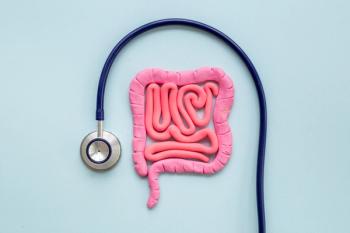
Medical Cannabis Associated With Improvements in Health-Related Quality of Life
Balanced products showed greater improvements compared to either CBD-dominant or THC-dominant products.
Medical cannabis is becoming increasingly popular and previous research has found evidence for its use in treating a host of different conditions, including chemotherapy-induced nausea and vomiting, pain in adults and spasticity associated with multiple sclerosis.
New research published in JAMA Network Open1 has now found that patients using medical cannabis reported improvements in health-related quality of life and that the improvements were mostly sustained over time.
Due to the wide range of different conditions that patients are using medical cannabis to treat, investigators sought to assess whether patients report improvements in health-related quality of life over time. This type of clinical evidence can be used to provide clinicians with important safety and efficacy data.
“Validated health-related quality of life measures can help provide important, global insights into associations between medical cannabis treatment and daily functioning, physical mobility, and mental health among patients with various and disparate conditions,” the authors wrote.
Investigators conducted a retrospective case series analysis of patients prescribed medical cannabis through a network of specialist medical clinics across Australia from December 2018 through May 2022. Data was collected for every observation available comprising baseline and up to and including the first 15 follow-up consultations. Patients also were asked to fill out a series of questionnaires, including the 36-Item Short Form Health Survey (SF-36).
The study cohort included 3,148 participants, of which 53.6% were female and 30.2% were employed. The mean age of participants was 55.9 years at baseline before treatment. The most common indication for treatment was chronic non-cancer pain, followed by cancer pain, insomnia, and anxiety.
The primary study outcome was change from baseline in patient scores on the SF-36, which ranges from 0-100, with higher values indicating better outcomes. The questionnaire contains 36 items that form 8 distinct scales, including:
- limitations in physical activities due to health problems
- limitations in social activities due to physical or emotional problems
- limitations in usual role activities due to physical health problems
- bodily pain
- general mental health (psychological distress and well-being)
- limitations in usual role activities due to emotional problems
- vitality (energy and fatigue)
- general health perceptions
Investigators found that patients reported significant improvements on all 8 domains of the SF-36 after starting treatment with medical cannabis. The observed treatment effects suggested improvements relative to baseline ranging from 6.60 to 18.31 points. Despite the fact that daily THC/CBD doses differed considerably across the treatment categories, estimated treatment effects were very similar.
Additionally, balanced products were associated with greater improvements compared to either CBD-dominant or THC-dominant products for all domains except physical functioning and role-physical. CBD-dominant products were associated with largest improvements on the role-physical domain, while THC-dominant products were associated with largest improvements on the physical functioning domain.
In total, 2,919 adverse events were recorded, with most being either mild or moderate. However, there were 86 severe and 2 series adverse events, with one incidence of hallucination. The majority of adverse events included sedation and/or sleepiness, dry mouth, lethargy and/or tiredness, dizziness and difficulty concentrating.
“This study suggests a favorable association between medical cannabis treatment and quality of life among patients with a diverse range of conditions,” the researchers concluded. “However, clinical evidence for cannabinoid efficacy remains limited, and further high-quality trials are required.”
Reference
1. Arkell TR, Downey LA, Hayley AC, Roth S. Assessment of Medical Cannabis and Health-Related Quality of Life. JAMA Network Open. 2023;6(5):e2312522. doi:10.1001/jamanetworkopen.2023.12522.
Newsletter
Pharmacy practice is always changing. Stay ahead of the curve with the Drug Topics newsletter and get the latest drug information, industry trends, and patient care tips.























